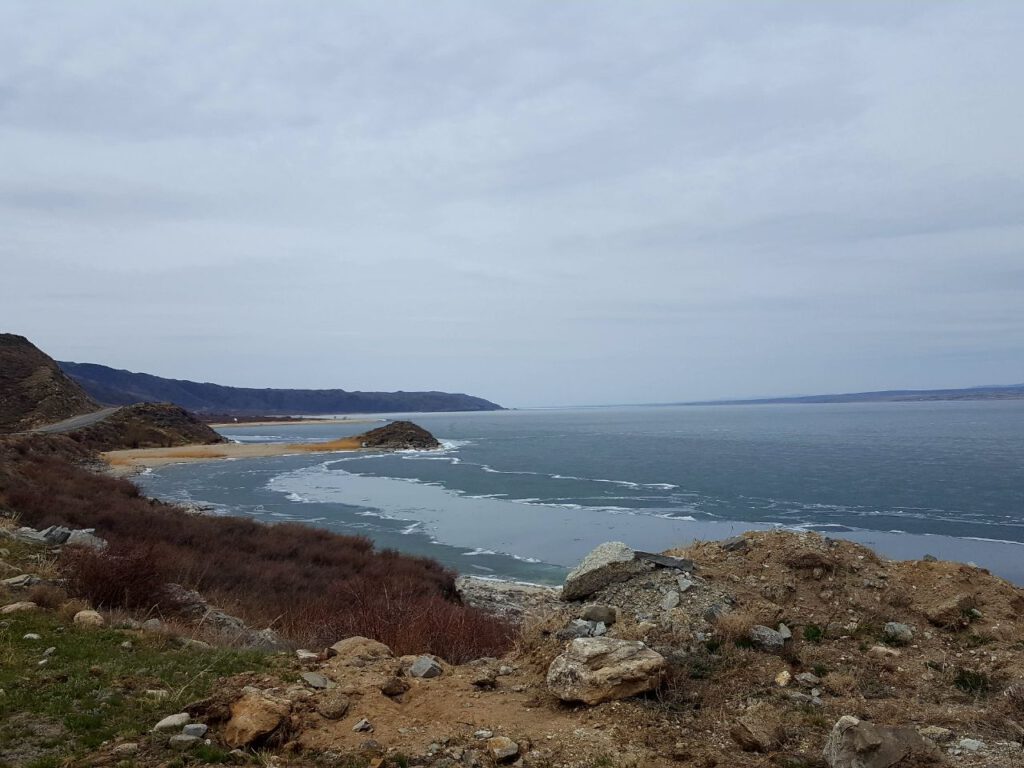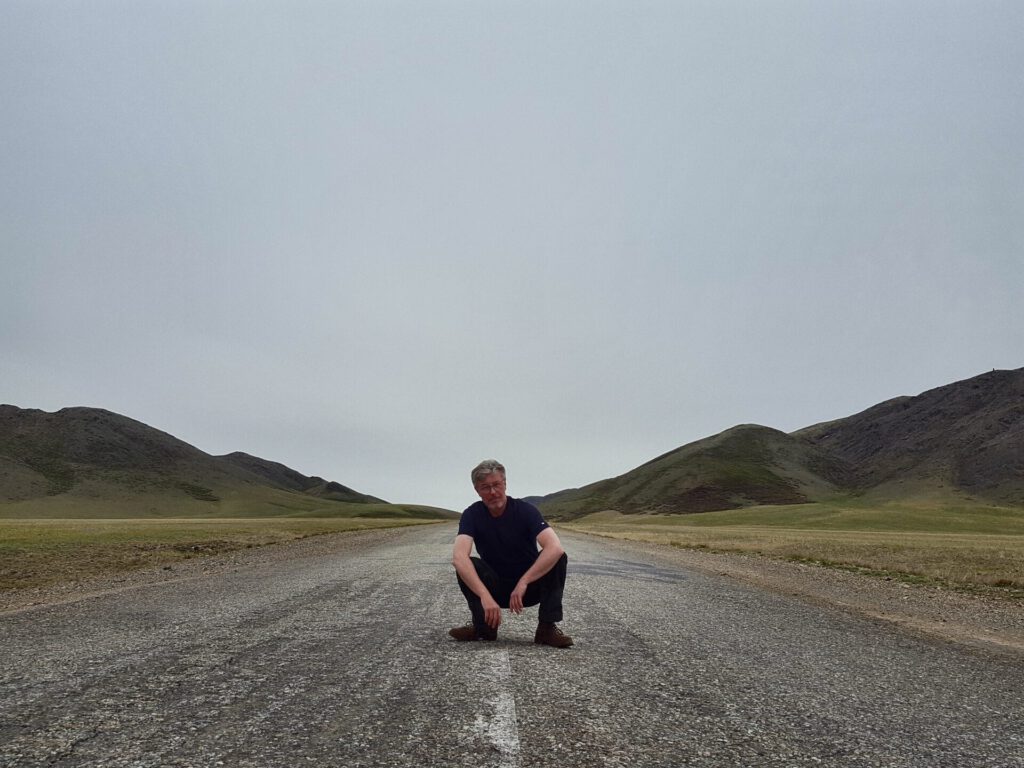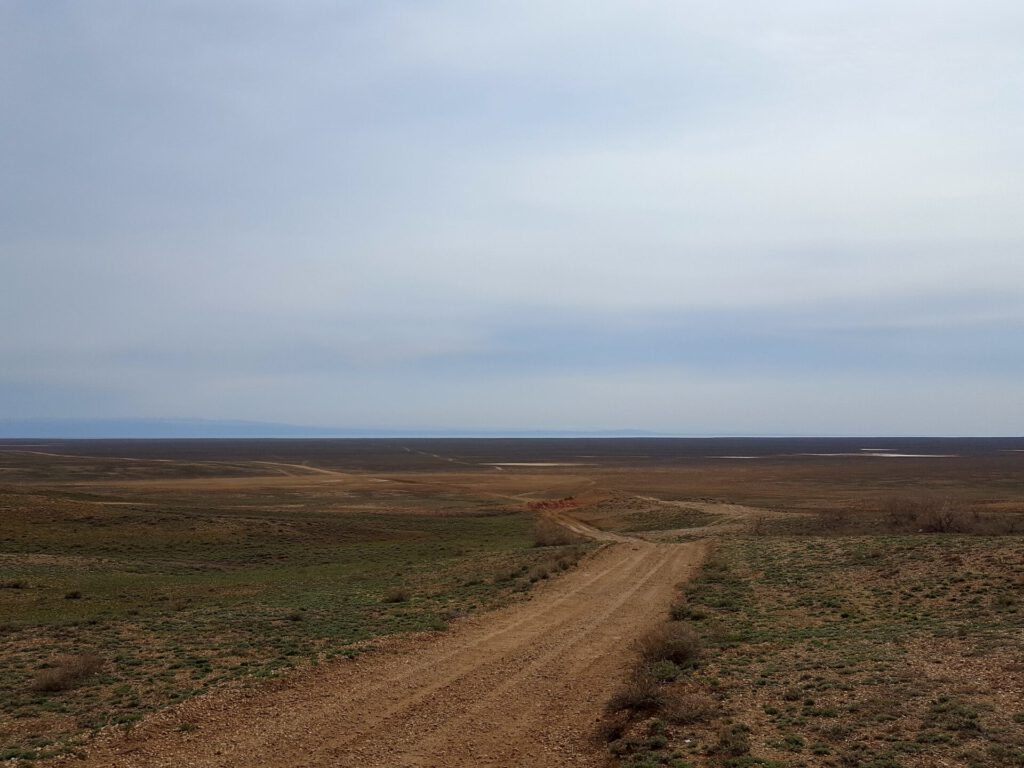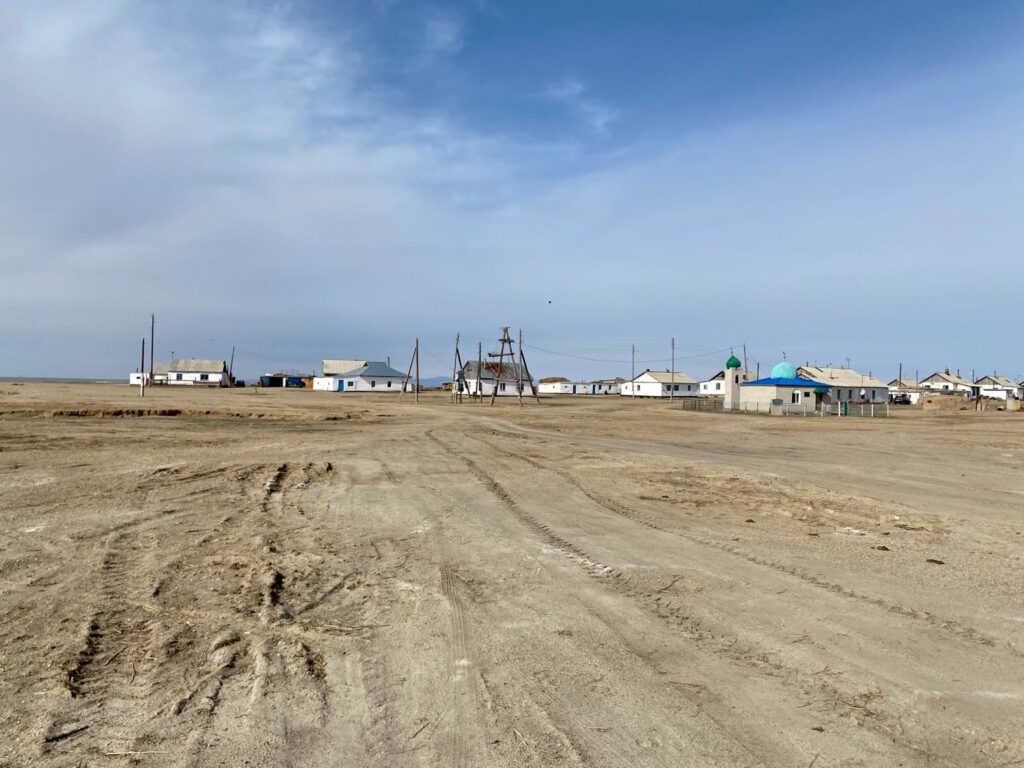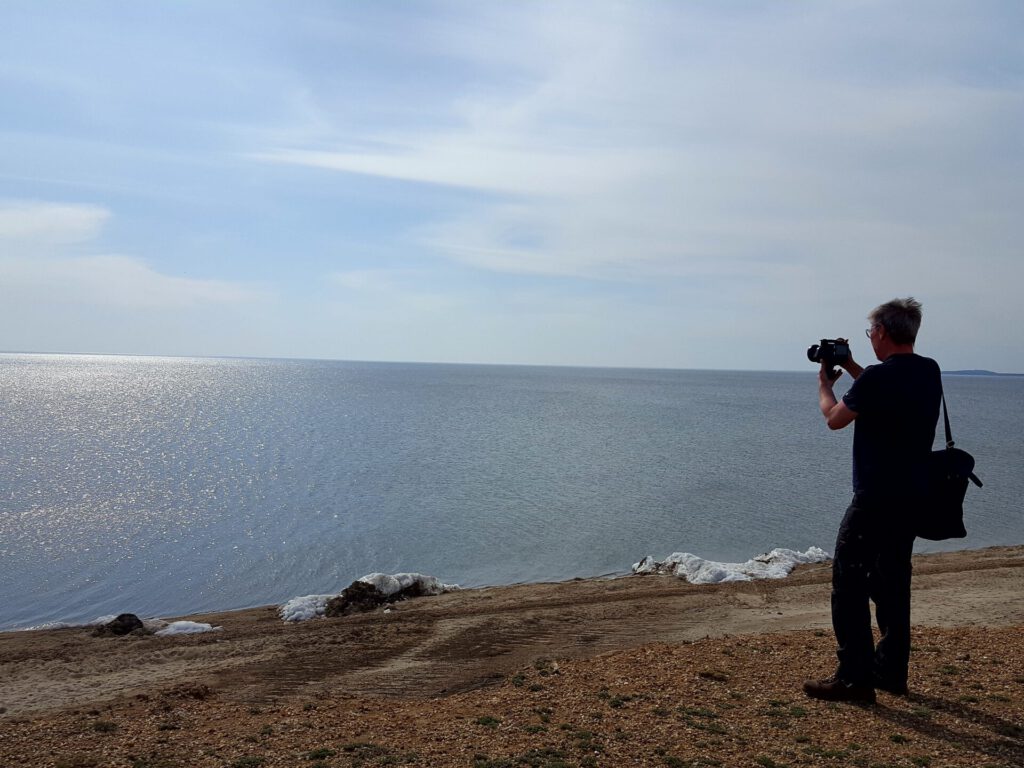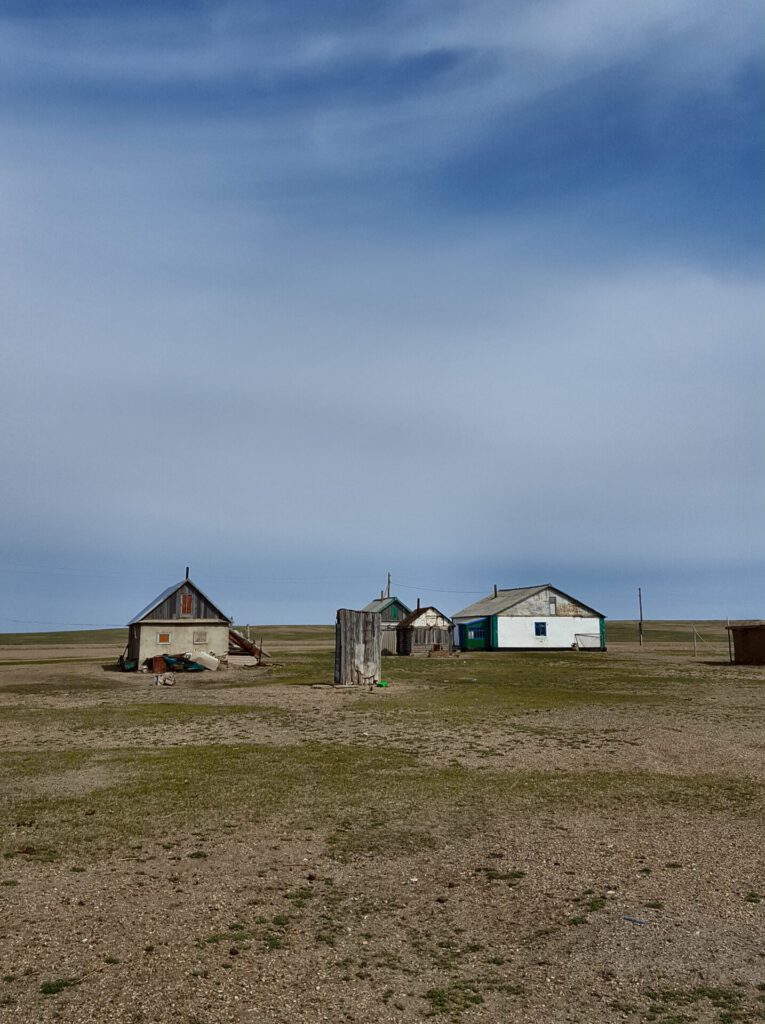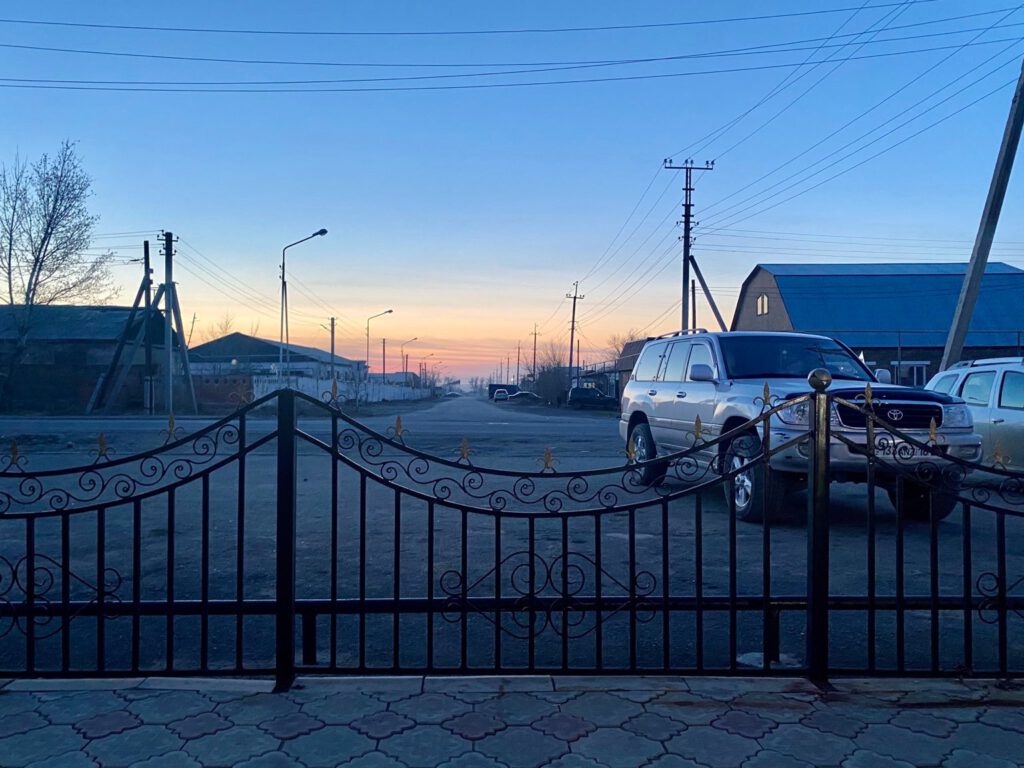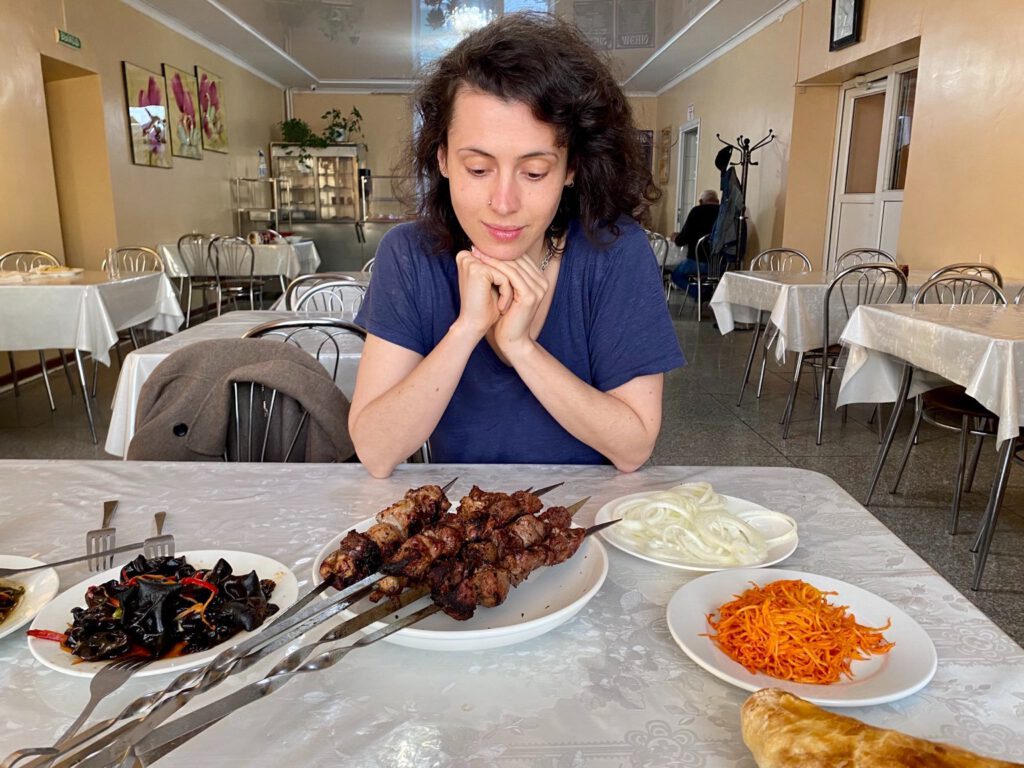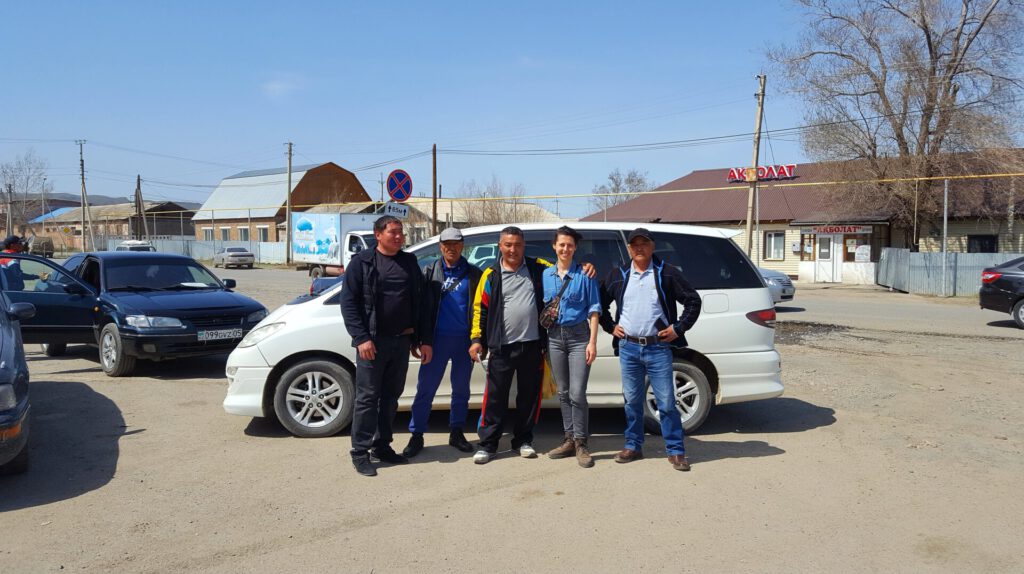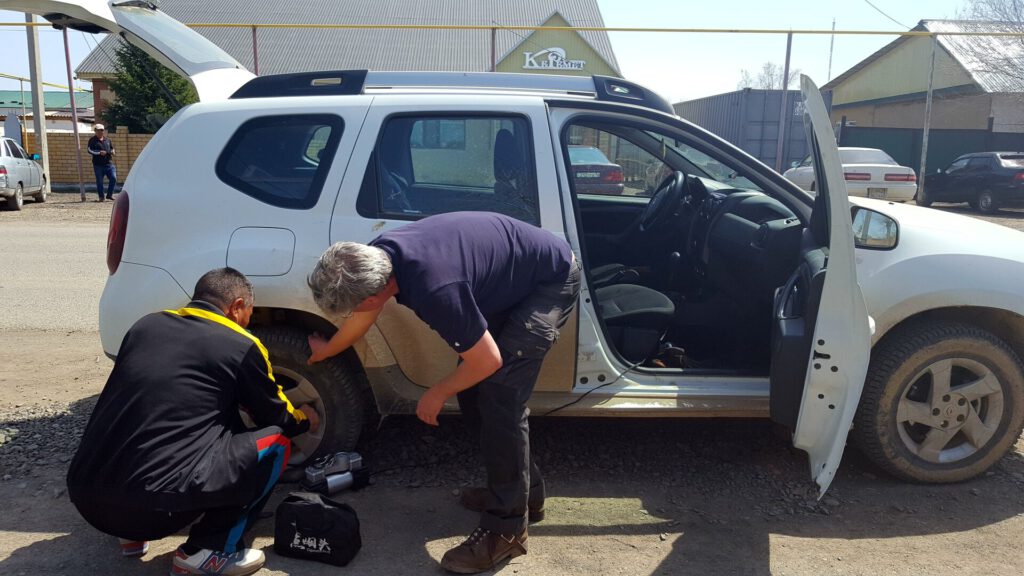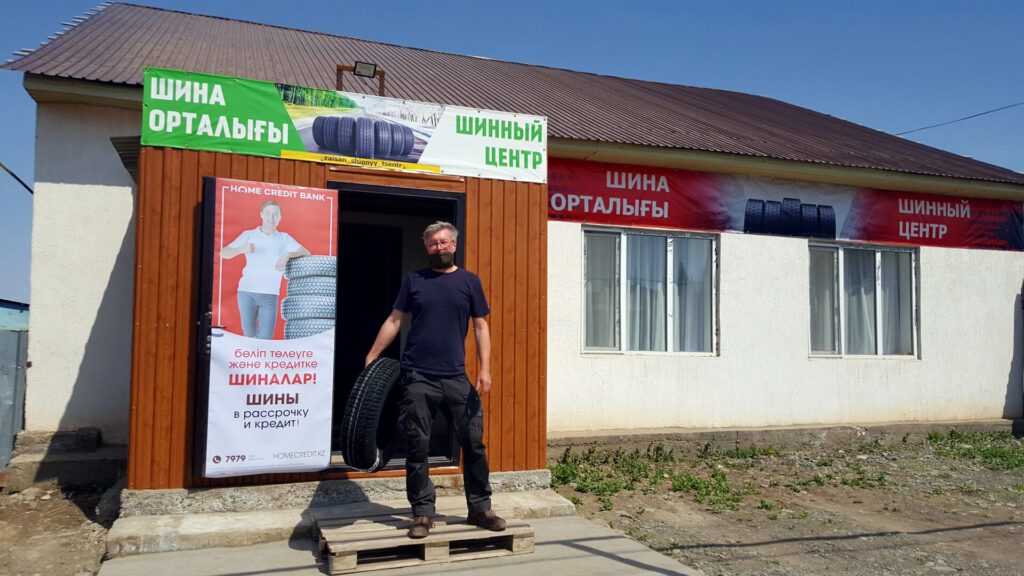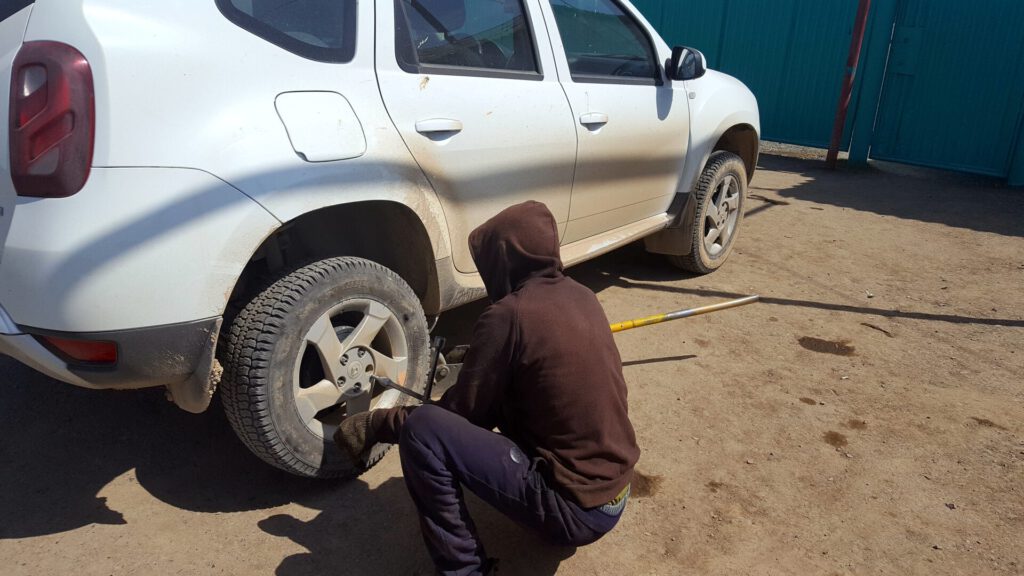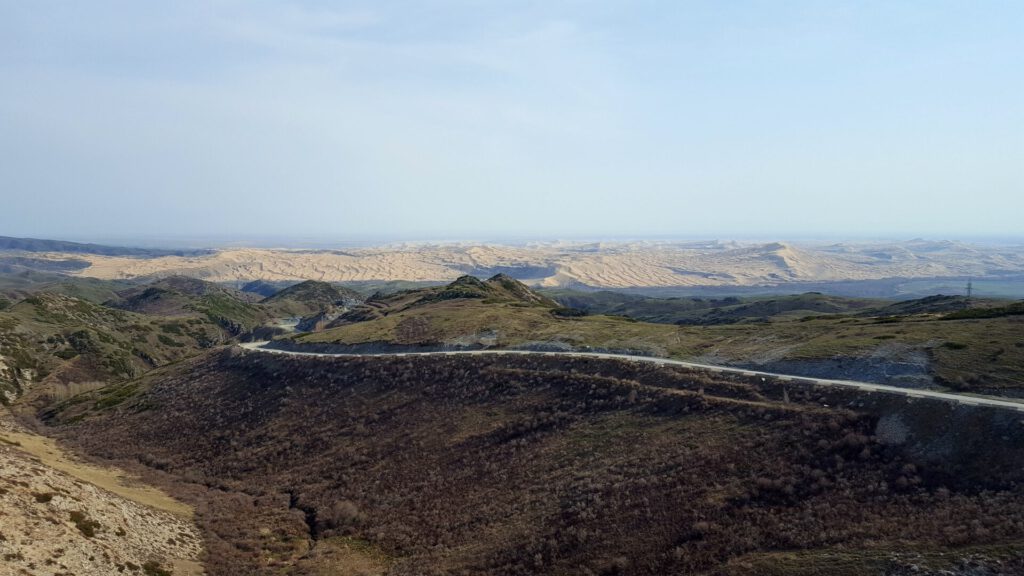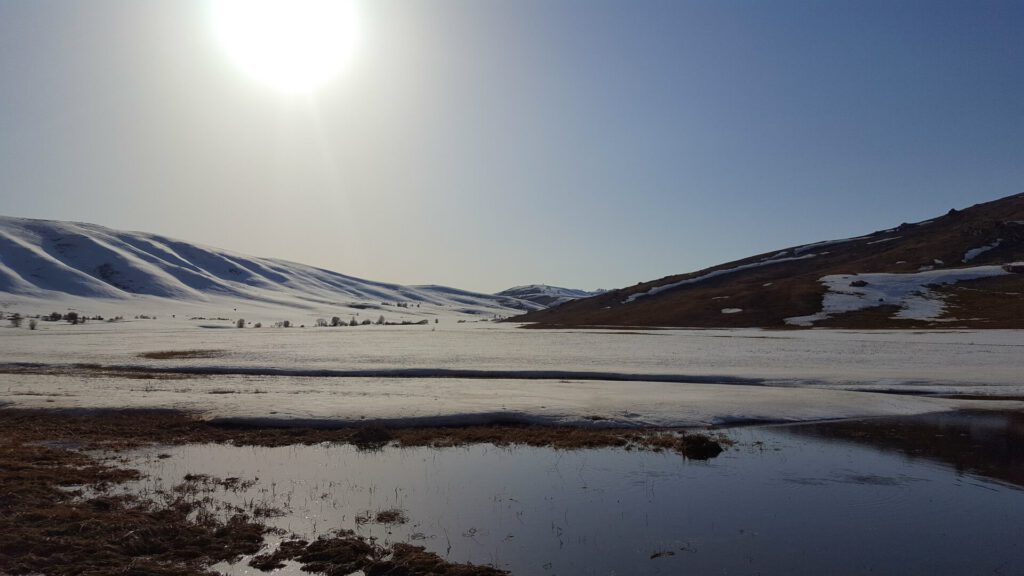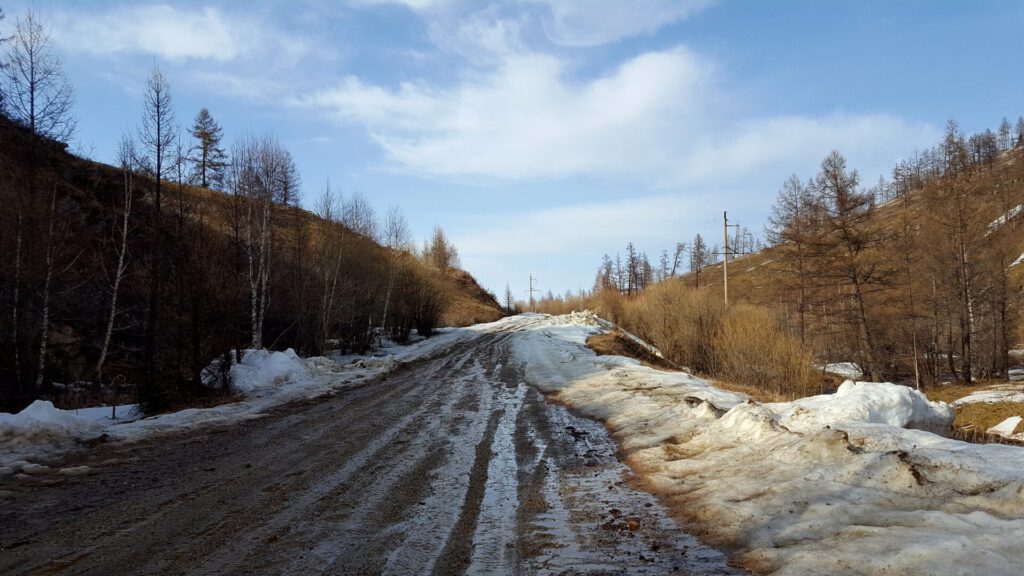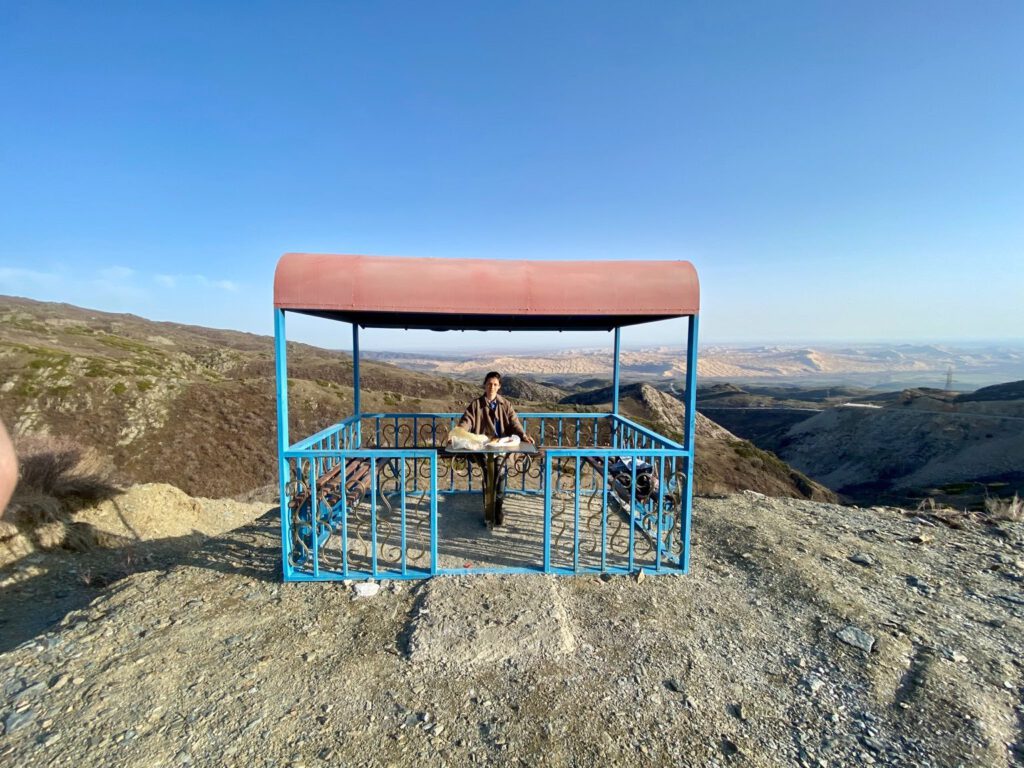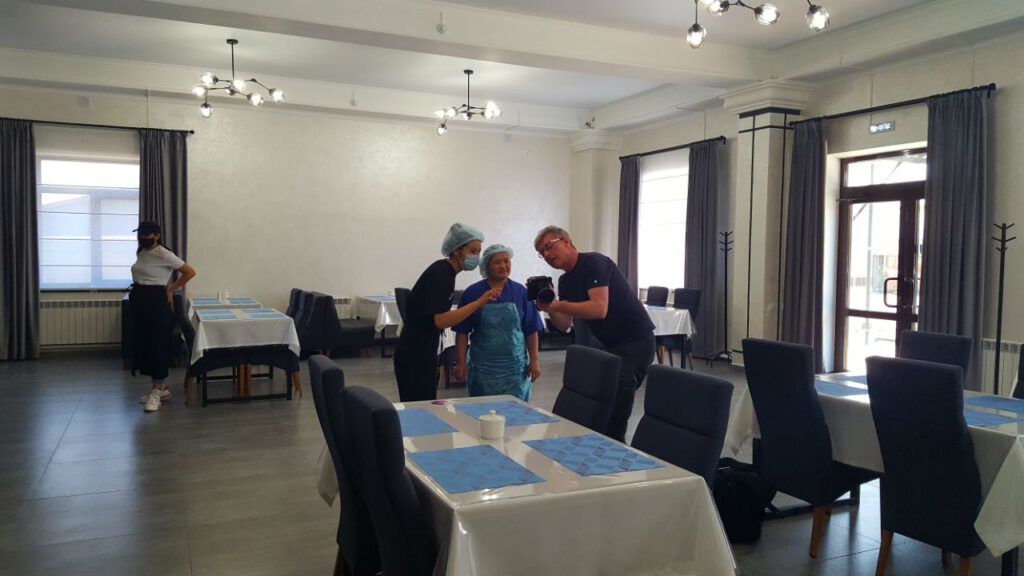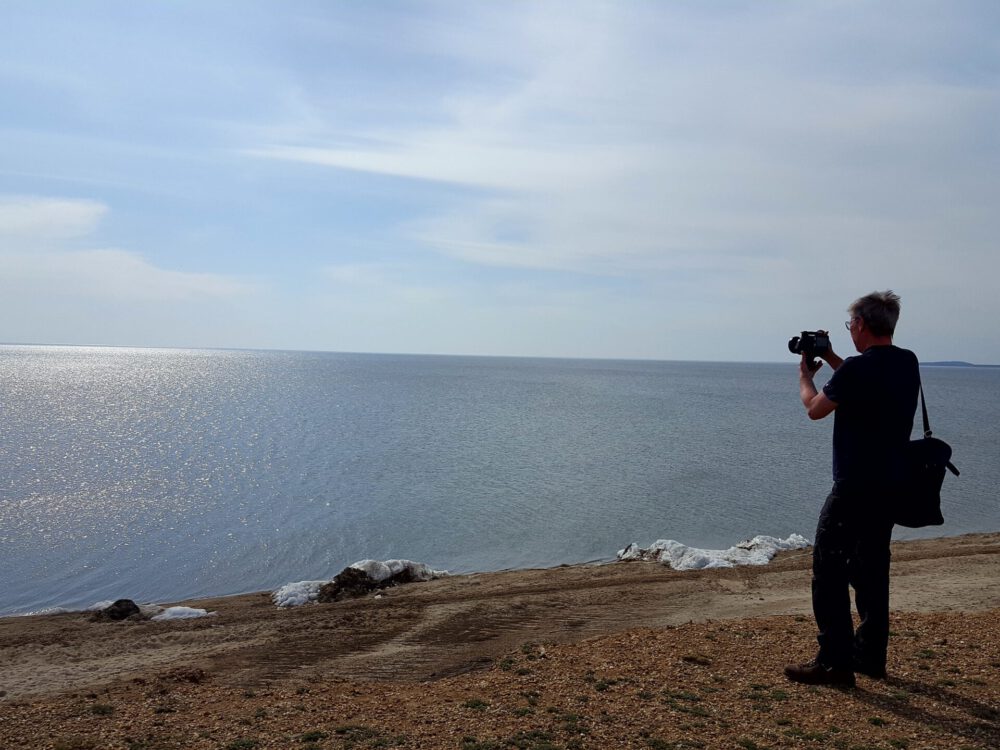As soon as we left Ulken Narym, a new, almost maritime landscape met our eyes. The river Irtysh has been accompanying us for weeks now, and yet it knows how to amaze us anew every time: whether as a city river lined with promenades, in the idyllic Buchtarma reservoir or the mighty Lake Zaysan. The latter was our next destination. We were also amazed at the rapid rise in temperature, regardless of the change of location. Within a week, the values climbed so high that we exchanged our thick jackets for T-shirts.
To get to Lake Zaysan, we left the main road and drove onto a steppe track. Thanks to four-wheel drive, we were able to overcome all the mud holes and reached the small fishing village of Amanat. This settlement, situated directly on the lake, gripped us with its very peculiar atmosphere. Wide, unpaved roads, little houses standing somewhere in the middle of space, numerous mud huts (probably stables or camps), circling seagulls and birds of prey – all this created an enraptured, even unreal place. It was enlivened by a few playing children and young men who rode through the place on motorbikes. A few old people sat on small benches in front of their houses. “Ooh, you’re from Germany. Well, have a good trip,” an older woman wished us. A young fisherman was very interested in how Volker’s camera worked. “A photo with me? But not in those clothes, that won’t work!” Thanks to a little persuasion, he did allow himself to be photographed in his work clothes.
Even if this place seemed to have fallen out of time, almost untouched – the traces of modernity spread out only a few hundred metres behind the village. The steppe was littered with bottles, bags and other plastic packaging. Unfortunately, this sight was not uncommon on our trip. Kazakhstan has a rubbish problem. On the one hand, this is due to the lack of ecological education of the population, and on the other hand, there is a lack of landfills, which are no longer sufficient for the increasing amounts of waste. This is a problem that President Tokayev has put on his agenda for 2020. A new school subject is to sensitise children to ecological issues. In addition, initiatives are dedicated to education and collective waste disposal.
On the way back, we had to get back on the main road, and suddenly there was a car in no man’s land and some men around it. Where were we going, they asked us. To the town of Zaysan, I replied. Immediately they told us to go back to the fishing village and take the shorter road along the lake. Whether they fell from the sky – we don’t know. Anyway, we decided to follow their advice. In fact, a road from Amanat led much faster to Zaysan. Our timing was perfect. Because just as we arrived at the hotel, the shashlik barbecue was being fired up in front of the Асхана ( Ashana – a kind of cafeteria) belonging to it.
We spent two days in the small town of Zaysan and quickly felt at home there. This was due on the one hand to the clarity of the place and on the other hand to the people. In the morning we had tea in the Асхана. Then we went to the market, which was just around the corner, and stocked up on some fruit, vegetables and of course Kurt. On the very first day, we made the acquaintance of Indira, who works as a cook in a restaurant. We were the first foreigners she met here, she told us. “Life in Zaysan has become better and better in the last few years. I like living here,” she said and told us about the many urban development measures like school construction and infrastructure of the new mayor. Didn’t we want to take a photo of her and the girls, she asked with a somewhat mischievous smile. Of course!
On the way back to the inn, we passed a group of taxi drivers sitting on benches waiting for customers. “Where are you from?” one of them asked me. I routinely gave a summary of who I and Volker were and what we were doing here. The questioner, Irkin, in turn gave a summary of why he wanted to emigrate to Germany or Canada. The political and economic structures in his home country were too rigid and opaque. But he himself, at 50, is probably too old to make a new start in a foreign country. “Let’s take a photo as a souvenir,” he said and called his colleagues over to the two “iz Germanii”.
The new friendship with Irkin was to prove a good coincidence shortly afterwards. We wanted to try Lake Markakol again, this time from the southern side. But we didn’t get very far. A flat tyre ended our trip after only a few metres. Whether it had fallen victim to one of the potholes on the roads or the steppe exertions of the day before? Volker initially wanted to change the tyre himself, but had to give up due to the poor tools in the car. I went back to the taxi drivers, and a few minutes later Irkin had inflated the tyre with a compressor and directed us to a tyre service (which, by the way, can be found here every few metres) he trusted. So we waited at a crisp 28 degrees in the shade in the blazing sun (there was no shade to be found far and wide) for the journey to continue.
This time, the road to the lake led us through the Azutau Mountains. Soon only a few kilometres separated us from the Chinese border, behind which is the Uyghur autonomous region of Xinjiang. The red flag of the border guards was in sight. Up the mountain we went on serpentines covered with potholes. And as so often on the journey, where we cover hundreds of kilometres through steppe and mountains almost every day, we thought of Brehm and imagined covering this way alone on horseback. But we preferred the sometimes bumpy ride. And then the phenomenal panorama! Why worry about the road conditions?
At some point, a magical, wintry landscape stretched out before us. The path was clear, however, and we soon saw ourselves standing on the shore of the lake. We passed the village of Аkzhailau (Uspkenka), only a few kilometres separated us from Markakol. And again…snow! Suddenly the road was occupied. In front of us, some men were already trying to push out their stuck car. No chance! Well, with horses it wouldn’t have been a problem for us here.
In the evening we met Irkin for tea. He asked us many questions about Germany: “The humidity is higher there, isn’t it?” “Everything is neat, isn’t it? Houses, streets, people…” “I heard that one village ends there and after a few the next one begins. Is that true?” Our answers ranged between cliché confirmation and disillusionment. The native from Zaysan told us that he will sell everything here and move with his wife to Oskemen, near to his daughters. There he will look for a new job, Irkin told us. At least he does not feel too old for this change.
